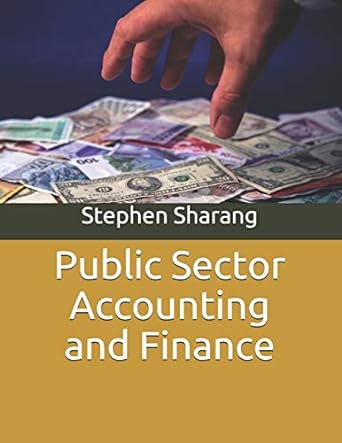Question
Current Events - Disclosure Scenario: Jane Johnson, is the Controller for a company that has recently become publicly traded, RonJohn Sports. RonJohn Sports has retail
Current Events - Disclosure
Scenario:
Jane Johnson, is the Controller for a company that has recently become publicly traded, RonJohn Sports. RonJohn Sports has retail sports stores, a thriving on-line business, a line of surf boards and swim/beach clothes. RonJohn Sports management reviews performance in according to the four business segments listed above.
The CEO, Ron John read the news article printed below and, after reviewing his companys annual report, makes the following statement to you. Why do we disclose all of this information dont you see (referring to the article) that investors dont want all this information? Ron says I dont know why investors cant just receive an income statement and balance sheet and skip the other pages of disclosure?
Mr. John goes on further I also dont like disclosing all the information about our business segments, why dont we just break the segments into North, South, East and West?
Instructions:
Respond to Mr. Johns comments with reference to the full-disclosure requirements under US GAAP and the rationale for the disclosure requirements. Also, refer to FASBs and SECs recent statements regarding disclosure (referenced in the article and links provided), and explain the likely direction of future disclosure.
Respond to Mr. Johns comment regarding the segment reporting. Be sure to discuss the disclosure requirements and rationale for segment reporting.
Investors Seek Less Noise in Disclosures, Says NACD
Tammy Whitehouse
April 02, 2014
While regulators ponder how to address concerns of disclosure overload, major investors say they aren't looking for less information, but perhaps less redundancy or less complexity.
Investors pretty much said to a person they're not turning down disclosure, says Kenneth Daly, president and CEO of the National Association of Corporate Directors, which recently convened an investor summit to hear from major investor groups. At the same time, they made it abundantly clear, there are lots and lots of technicalities described in the disclosures, especially with respect to complex disclosures in consolidated financial statements. Many believe it to be excessive, he says.
NACD gathered investors and investor advocates from organizations like the California Public Employees' Retirement System, the California State Teachers' Retirement System, Capital Group, Fidelity, State Street Global Advisors, TIAA-CREF, T. Rowe Price, Vanguard, and the Council of Institutional Investors to get a pulse on what investors are looking for from boards of directors. The NACD summarized the investor viewpoint in a report, Critical Issues for Board Focus in 2014. The report says investors are looking for more engagement with directors, and not just around proxy season, to get a better sense of the rationale behind the company's governance and strategy.
The Securities and Exchange Commission and the Financial Accounting Standards Board both have undertaken initiatives to reconsider present disclosure requirements. SEC Chair Mary Jo White said last fall she's concerned about the information overload produced by a growing list of disclosure requirements and was launching a review internally and externally about what might be done to address it. The SEC staff issued a report in December summarizing disclosure requirements under Regulation S-K as part of a requirement under the JOBS Act to reduce disclosure burden for emerging growth companies.
The Financial Accounting Standards Board meanwhile is reviewing its disclosure requirements and exploring how to produce a new framework for disclosure requirements that would enable both FASB itself and preparers to focus on disclosures that most matter to users of financial statements. FASB published an invitation to comment in 2012 and more recently a proposed change to its framework for financial reporting to revise the chapter on footnote disclosures.
Peter Gleason, managing director for NACD, says investors have told the NACD their concern about disclosures is focused primarily on the abundance of disclosures produced by redundancy. There are whole sections of the proxy statement that are repeated, and that's not helpful, he says. Investors would welcome alternative placement for certain kinds of information, he says, such as on corporate websites instead of in regulatory filings. They are advocating for more disclosure, but in different places than the filed document.
Below are links to the FASBs project and SEC Chair comments.
http://www.fasb.org/jsp/FASB/FASBContent_C/ProjectUpdatePage&cid=1176156344894
http://www.sec.gov/News/Speech/Detail/Speech/1370539878806#.U0QMdbXD-zl
Step by Step Solution
There are 3 Steps involved in it
Step: 1

Get Instant Access to Expert-Tailored Solutions
See step-by-step solutions with expert insights and AI powered tools for academic success
Step: 2

Step: 3

Ace Your Homework with AI
Get the answers you need in no time with our AI-driven, step-by-step assistance
Get Started


